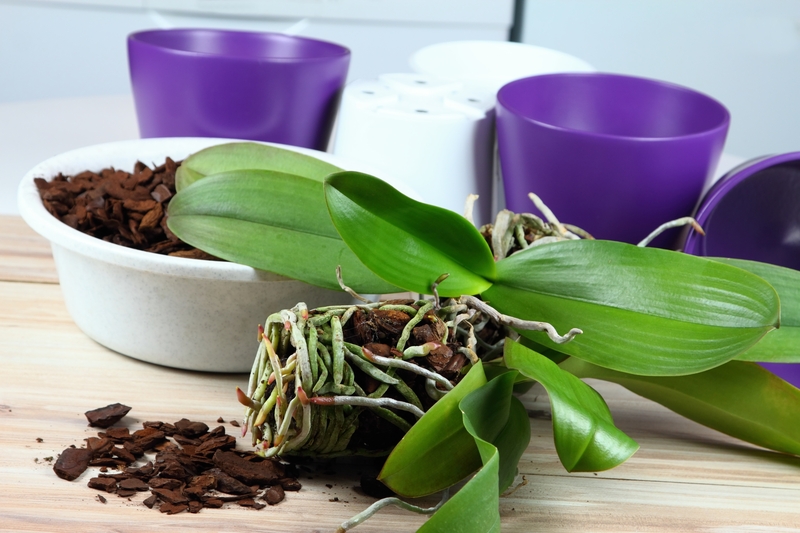Climate Change Warriors: The Hidden Power of Gardening
Posted on 02/07/2025
Climate Change Warriors: The Hidden Power of Gardening
Climate change is one of the biggest challenges facing our planet today. Many of us feel powerless in the face of rising temperatures, extreme weather events, and the loss of biodiversity. However, there is an unexpected hero in this global fight: gardening. By understanding the crucial role that gardens play, we can all become climate change warriors and help to ensure a healthier, more resilient world for future generations.

Why Gardening Matters in the Fight Against Climate Change
Most people think of gardening as a relaxing hobby. Yet, what many don't realize is that gardening holds a tremendous power in reversing and mitigating the effects of climate change. From improving local ecosystems to reducing carbon footprints, gardens are nature's secret weapon in building a sustainable environment.
The Environmental Impact of Gardening
Gardening does much more than just beautify our surroundings. Eco-friendly gardening can have a profound impact on both local and global ecosystems:
- Carbon Sequestration: Plants absorb carbon dioxide (CO2) through photosynthesis, removing harmful greenhouse gases from the atmosphere.
- Soil Health: Healthy soils store carbon, improve water retention, and prevent erosion.
- Biodiversity: Gardens provide habitats for pollinators, birds, and beneficial insects, supporting local wildlife.
- Urban Cooling: Plants reduce the urban heat island effect, cooling cities and lowering energy use.
- Waste Reduction: Composting returns organic matter to the soil, reducing landfill waste and methane emissions.
In essence, climate-conscious gardening transforms backyards, balconies, and community plots into hubs of environmental action.
How to Be a Climate Change Warrior in Your Own Garden
Whether you have a large yard or just a few containers, every garden can make a meaningful impact. Here's how you can harness the hidden power of gardening to combat climate change:
1. Choose Native and Drought-Tolerant Plants
Native plants are adapted to your local climate and require less water, fertilizer, and maintenance. Growing them supports local biodiversity and reduces your environmental footprint. Drought-tolerant plants like lavender or yarrow are ideal for areas facing water shortages.
- Support local pollinators with native flowers and grasses
- Reduce water waste with climate-appropriate species
- Minimize reliance on chemical fertilizers and pesticides
2. Practice Organic and Regenerative Gardening
Avoid synthetic chemicals that harm the soil and water supply. Instead, use organic gardening methods such as crop rotation, composting, and natural pest control. Regenerative gardening goes a step further, aiming to restore soil health and boost carbon capture.
- Compost kitchen and yard waste to create rich soil
- Use cover crops to protect and enrich the earth
- Encourage beneficial insects with diverse planting
3. Grow Your Own Food
Growing food at home reduces the carbon emissions associated with transporting, packaging, and storing food. Even a few herbs or vegetables can make a difference!
- Shorten the food supply chain and lower your carbon footprint
- Enjoy fresher, more nutritious produce
- Reduce reliance on chemical-laden supermarket food
4. Save Water and Capture Rain
With changing weather patterns and drought on the rise, wise water use is essential. Water-wise gardening uses techniques like mulching, drip irrigation, and rainwater harvesting to conserve resources.
- Mulch garden beds to retain moisture and prevent evaporation
- Collect rainwater in barrels for irrigation
- Choose permeable paving to let water soak into the ground
5. Create Wildlife-Friendly Habitats
Gardens can restore habitats lost to urbanization and monoculture farming. With a few thoughtful choices, your garden can become a sanctuary for birds, bees, butterflies, and more.
- Plant a diverse range of flowering species for year-round nectar
- Leave leaf litter or wood piles for shelter and food
- Install bird baths and bee hotels
6. Compost: Turning Waste Into Climate Action
Organic matter in landfills produces methane, a potent greenhouse gas. Composting at home or through community programs returns nutrients to the earth, cuts waste, and stores carbon in the soil. It's a small action with immense climate benefits.
The Science Behind Gardening and Climate Change
Gardening is not only beneficial in principle; it's backed by solid scientific evidence. Here's how science supports gardens as a tool against planetary warming:
- Soil Carbon Storage: Healthy soil stores more carbon than forests and helps regulate the planet's carbon cycle.
- Plant Power: Studies show that urban green spaces can offset up to 10% of a city's carbon emissions annually.
- Urban Heat Reduction: Gardens keep cities cooler by providing shade and releasing moisture into the air--a process called evapotranspiration.
- Biodiversity Boost: Gardens act as "stepping stones" for wildlife, connecting fragmented habitats and supporting pollinators vital for global food production.
These findings underline the importance of reclaiming both private and public green spaces as climate change solutions.
The Growing Movement: Gardening on a Global Scale
From rooftop gardens in Manhattan to urban farms in Nairobi, the gardening movement is surging worldwide. Community gardens empower people, boost food security, and build resilience to climate shocks:
- Community Gardens: Shared spaces bring neighbors together, reduce city temperatures, and provide fresh local food.
- Edible Landscapes: Schools and cities are transforming lawns into food forests, teaching the next generation about sustainability.
- Pollinator Pathways: Regional projects connect habitat patches for bees and butterflies, reversing biodiversity loss.
- Rewilding Urban Spaces: Vacant lots and rooftops are converted into natural havens, capturing carbon and supporting wildlife.
These initiatives demonstrate the hidden power of gardening as both a local and global solution for environmental change.
Gardening as a Personal and Collective Climate Action
When you plant a garden, you're not just growing flowers or food--you're creating a beacon of hope in the fight against climate change. Each seed planted, each pollinator welcomed, and each handful of compost added to your soil is a step towards a better world.
Every home garden, regardless of size, plays a role in the broader climate change movement. Collectively, our gardens can sequester tons of carbon, reverse wildlife decline, and reset our relationship with nature.
Common Myths About Gardening and Climate Change
Despite the scientific evidence, several misconceptions persist regarding the role of gardens in environmental action. Let's debunk a few of them:
- Myth: "Gardening is just a hobby, not a climate change solution."
Fact: Each garden is a pocket of biodiversity and a carbon sink, contributing to global efforts to slash emissions and boost resilience. - Myth: "Urban gardens are too small to make a difference."
Fact: When scaled up, urban gardens create vast "green corridors" that cool cities and provide refuge for wildlife. - Myth: "Gardening is only for people with land."
Fact: Balcony gardens, window boxes, and community plots are all effective ways to join the gardening revolution, no matter your living situation. - Myth: "Gardening is time-consuming and expensive."
Fact: Many forms of low-maintenance and cost-effective gardening exist, from growing microgreens on a windowsill to participating in a shared garden project.
Getting Started: Your Path to Becoming a Climate Change Warrior Through Gardening
If you're new to gardening but eager to join the movement, start small. Here are some actionable steps to launch your journey as a climate-conscious gardener:
- Educate Yourself: Learn about native plants and sustainable gardening techniques suited to your region.
- Start with Herbs or Microgreens: Quick to grow and easy to maintain--perfect for beginners with limited space.
- Connect Locally: Reach out to gardening clubs, community gardens, or environmental groups for support and resources.
- Invest in Soil Health: Build healthy, living soil with compost, mulch, and organic amendments.
- Avoid Chemicals: Embrace natural methods for pest control and fertilization.
- Share Your Knowledge: Inspire others to join the movement by sharing your gardening journey online or in your community.

The Future: Gardens as Agents of Change
As the world looks for scalable solutions to extreme weather, declining biodiversity, and food insecurity, the hidden power of gardening is coming to light. By turning ordinary spaces into dynamic ecosystems, we can reshape cities, strengthen communities, and reclaim our role as stewards of the Earth.
The next time you pick up a spade or plant a seed, remember: you're not just gardening. You're joining a legion of climate change warriors, fighting for a greener, more resilient future--one garden at a time.
Conclusion
In the global battle against climate change, every action counts. Eco-friendly gardening not only empowers individuals but also regenerates the planet. By cultivating green spaces, nurturing biodiversity, conserving water, and building healthy soils, we each have the potential to create powerful change. Whether you have a sprawling backyard or a sunny windowsill, your garden can become a beacon of hope and resilience. Embrace the hidden power of gardening--and help lead the way as a true climate change warrior.
Latest Posts
Weed-Free Gardening: 3 Strategies for Success
Designing Stunning Gardens through Hedge Trimming Shapes
Create Lush Landscapes with Vertical Gardening

